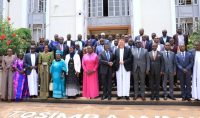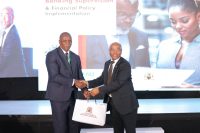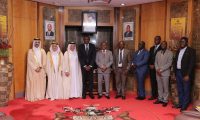Racheal Kobugabe: Championing Financial Inclusion and Economic Empowerment in Uganda

Racheal Kobugabe is a passionate financial inclusion specialist whose work across Uganda continues to open doors for micro enterprises, cooperatives, and underserved communities. With over a decade of experience in the financial services, development, and regulatory sectors, she has become a trusted voice in advancing inclusive finance and designing systems that empower people at the base of the economic pyramid.
From Early Mission to Strategic Impact
Racheal’s journey into financial inclusion began with a simple but powerful conviction: that access to finance is not just a service, but a pathway to dignity, independence, and possibility. Throughout her career, she has supported microfinance institutions, self-help groups, SACCOs, and small businesses through capacity building, resource mobilization, and training programs that promote sustainability and growth.
Building Systems That Serve People
Currently, Racheal serves as the Team Lead at AMFIU Business Consult Ltd, the business and consulting arm of the Association of Microfinance Institutions of Uganda (AMFIU). In this role, she leads initiatives that strengthen the capacity of financial service providers, SACCOs, and community-based institutions through transformative training programs, research, and business advisory. Her work emphasizes practical learning approaches, integrating coaching, mentorship, and instructional design to ensure that institutions and individuals experience real transformation, not just training.
Racheal serves on the Board of ENCOT Microfinance and has held senior management and governance roles across Uganda’s microfinance sector. She has also consulted for international organizations such as the African Union, IFAD, and IFC, contributing to projects that strengthen institutional systems and expand access to finance for vulnerable communities. Her expertise spans instructional design, financial inclusion program development and management, policy advocacy and advisory, research, and mentorship and coaching. She believes that effective training should not just inform but transform, equipping individuals to lead change within their institutions and communities.
Academic and Professional Foundation
Racheal holds an MBA in Finance and a Bachelor’s Degree in Management Science, complemented by professional certifications in Islamic Finance, Digital Financial Services, and complementary courses.
Empowering Lives and Generating Change
Racheal’s influence is best seen in the communities she serves, when a village savings group establishes a thriving enterprise, when a woman-led cooperative scales sustainably, or when young professionals find confidence in their roles through mentorship. Her facilitation style is deeply human, combining empathy and technical rigor to unlock potential at every level.
Her advocacy for inclusive finance has shaped dialogue around how financial systems can better serve vulnerable communities, from improving access to a broad range of financial products to embedding equity in institutional design and service delivery.
Why Racheal Moves Nations
Racheal moves nations because she builds bridges where others see barriers. She connects people with finance, institutions with partners, and systems with purpose. Her leadership is grounded in quiet excellence, ensuring that the promise of finance becomes the lived reality of opportunity.
Her impact is not measured in numbers alone, but in the transformation of lives: individuals who save, invest, and thrive after once believing finance was beyond their reach. She embodies the belief that inclusion is achievable when empathy meets expertise and vision meets action.
A Legacy of Inclusion and Impact
Racheal Kobugabe’s legacy is unfolding through cooperatives that run effectively, microfinance institutions that serve equitably, and entrepreneurs who lead confidently. She demonstrates that when financial systems are designed for people, not just profit, growth becomes shared and sustainable.
Her work stands as a reminder that inclusion is not an act of charity; it is justice in action and a call to design systems that leave no one behind.
Latest News
Uganda’s Economic Growth Shifts from Aid Dependence to Private Sector Strength — Ggoobi
Uganda’s Permanent Secretary to the Treasury, Ramathan Ggoobi, has revealed that the...
Parliament Questions Government Payment to Umeme Despite Outstanding Debt
Members of Uganda’s Parliament have raised serious concerns over the government’s recent...
Shanta Patel Rabadiya: A Beacon of Hope Through Compassionate Action
Shanta Patel Rabadiya is a humanitarian leader whose heart has turned empathy...
Stanbic Bank Enhances Healthcare Access with Donation to Rukoki Health Centre
Over the weekend, Stanbic Bank Uganda reaffirmed its commitment to community health...













